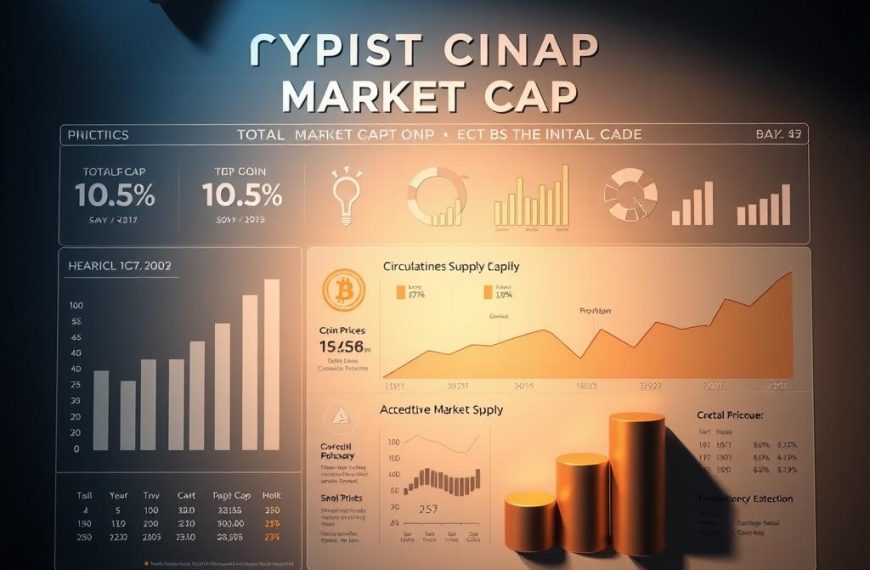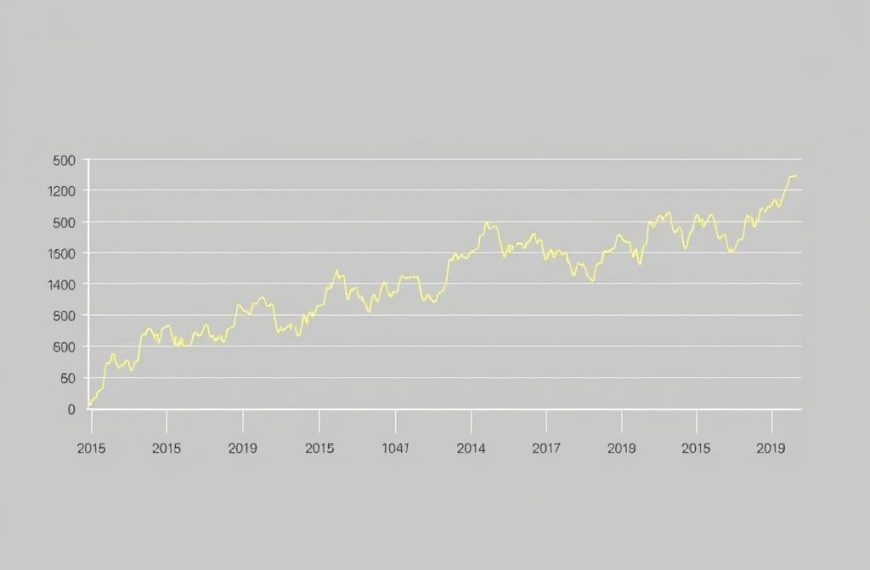Buying Bitcoin in Canada has become easier as the digital asset landscape evolves. More Canadians are exploring cryptocurrency exchanges for investment opportunities1. About 4 million Canadians now own cryptocurrencies, showing a growing interest in digital financial assets1.
Canada’s cryptocurrency market offers unique advantages for investors. The country was among the first to regulate and embrace digital currencies2. This approach has created a secure and transparent environment for purchasing Bitcoin through exchanges2.
Bitcoin ownership has seen some changes recently. In 2023, 10% of Canadians owned Bitcoin, down from 13% during the previous crypto boom1. However, institutional interest remains strong, with one-third of investors having exposure to crypto assets1.
Newcomers can start their Bitcoin journey with small investments. Initial purchases can begin with as little as $20-$302. This accessibility makes the cryptocurrency market open to a wide range of investors.
This guide will help you buy Bitcoin in Canada. We’ll explore reliable exchanges, explain regulations, and offer insights into secure investment strategies.
Understanding Bitcoin and Cryptocurrency Exchanges in Canada
Canadian cryptocurrency exchanges offer diverse opportunities for digital asset investment. These platforms provide secure trading for Bitcoin and other digital currencies3. Canadian cryptocurrency exchanges have become increasingly sophisticated.
The Canadian cryptocurrency market presents exciting opportunities and significant challenges. Understanding the regulatory environment and key platforms is crucial for investors. Navigating digital currencies requires knowledge of the unique Canadian landscape.
Top Canadian Cryptocurrency Platforms
Several prominent exchanges have emerged in the Canadian market. These platforms offer robust trading capabilities for investors.
- Wealthsimple allows trading for multiple cryptocurrencies, including Bitcoin, Ethereum, and over 70 additional digital assets4.
- Platforms provide varying levels of insurance and security, with some offering over $75 million in cold storage coverage4.
- Trading fees differ based on account values, ranging from 2% to 0.5% depending on total asset holdings4.
Regulatory Landscape
Bitcoin regulations in Canada have developed progressively. The country has been proactive in establishing clear guidelines for digital asset trading3.
- Capital gains on cryptocurrencies are taxable, with specific exceptions for certain savings accounts3.
- Canadian investors can purchase cryptocurrency ETFs through traditional and online brokerages3.
Advantages of Canadian Exchanges
Canadian cryptocurrency exchanges offer unique benefits for local investors:
- Direct integration with Canadian banking systems
- Compliance with local regulatory requirements
- Support for Canadian dollar transactions
Investors should approach cryptocurrency investments cautiously, never investing more than they can afford to lose3.
How can you buy Bitcoin in Canada?
Buying Bitcoin in Canada is now easier than ever. Canadians have several options to enter the digital currency market. Each method has its own pros and cons1.
- Cryptocurrency Exchanges
- Bitcoin ATMs
- Peer-to-Peer Platforms
- Online Trading Platforms
Cryptocurrency exchanges top the list for buying Bitcoin. Platforms like Coinsquare offer strong security features. They keep over 90% of customer funds in cold storage1.
The Canadian crypto scene is thriving. About 4 million Canadians own cryptocurrencies1. This shows a growing interest in digital assets.
| Purchase Method | Transaction Speed | Fees |
|---|---|---|
| Interac e-Transfer | 30 minutes | 0% |
| Wire Transfer | 1-5 business days | Varies |
| Bitcoin ATM | Instant | Higher percentage |
When buying Bitcoin, consider transaction fees and platform reliability. Beaver Bitcoin, for example, charges a 1.5% fee with a minimum transaction of CA$1505.
The smallest Bitcoin unit is called a Satoshi. It’s worth one hundred millionth of a Bitcoin5.
Pro tip: Always verify the platform’s reputation and security measures before investing.
Institutional interest in cryptocurrencies is on the rise. About one-third of institutional investors have crypto asset exposure1. This trend suggests Bitcoin is gaining acceptance as an investment.
Secure Storage Solutions for Your Bitcoin
Protecting your cryptocurrency investments requires careful thought about Bitcoin wallets and storage strategies. Understanding secure storage solutions is vital for safeguarding your Bitcoin from potential threats6.
Cryptocurrency storage offers multiple options, each with unique advantages and risks. About 17% of Bitcoin has been lost due to misplaced keys or forgotten access information6.
This highlights the importance of choosing the right storage method. Proper storage can prevent loss and ensure the safety of your digital assets.
Cold Storage: Maximum Security for Your Digital Assets
Cold wallets are the gold standard for Bitcoin security. These offline storage solutions greatly reduce online vulnerabilities6.
A commercial non-custodial cold wallet costs about £200. This investment can be worthwhile compared to the potential value of secured tokens6.
- Hardware wallets: Physical devices storing cryptocurrency offline
- Paper wallets: Printed documents containing public and private keys
- Multi-signature wallets: Requiring multiple approvals for transactions6
Hot Wallet Alternatives
Hot wallets offer convenient cryptocurrency storage with increased accessibility. These online wallets include mobile, desktop, and web-based platforms.
While more convenient, hot wallets have higher security risks compared to cold storage options6. Users should weigh convenience against potential risks.
Exchange-Based Storage Considerations
When storing Bitcoin on exchanges, choose platforms with strong security measures. Two-factor authentication is an essential security feature7.
In 2022, cryptocurrency theft totalled £3.8 billion. This figure decreased to £1.7 billion in 20236.
Remember: Never store more cryptocurrency than you can afford to lose.
Bitcoin Transaction Fees and Payment Methods
Buying Bitcoin in Canada involves various payment options and fees. Understanding these elements is vital for smart investing when purchasing Bitcoin. Let’s explore the key aspects to consider.
Canadian crypto exchanges offer several payment methods. These include Interac e-Transfer, bank wire transfers, credit/debit cards, and online payment platforms. Each option has its own benefits and drawbacks.
- Interac e-Transfer
- Bank wire transfers
- Credit and debit cards
- Online payment platforms
Payment methods differ in speed and fees8. Credit cards provide instant transactions but often have higher fees. Bank transfers are slower but typically cheaper9.
| Payment Method | Processing Time | Typical Fee Range |
|---|---|---|
| Interac e-Transfer | Instant to 24 hours | 0.5% – 1.5% |
| Bank Wire | 3-5 business days | 0.25% – 1% |
| Credit/Debit Card | Instant | 1.5% – 3.5% |
Cryptocurrency transaction fees vary between platforms. Exchanges may charge network, exchange, and service fees based on transaction type and size8. Some platforms use tiered fee structures that change with transaction volume.
Compare payment methods and fees carefully to optimise your Bitcoin purchases. Choosing the right method can reduce costs and boost investment potential. Take time to assess your options before deciding.
Navigating Bitcoin ETFs in Canada
Bitcoin ETFs have transformed cryptocurrency investments for Canadians. They offer a regulated way into digital assets. Canada led the way, launching the first crypto exchange-traded fund in February 202110.
These investment vehicles make cryptocurrency accessible. Investors can buy in without purchasing digital coins directly11.
Investors can choose from several prominent Bitcoin ETFs in the Canadian market:
- Purpose Bitcoin ETF (MER: 1.5%, AUM: $2.1 billion)10
- CI Galaxy Bitcoin ETF (MER: 0.77%, AUM: $724.7 million)10
- Fidelity Advantage Bitcoin ETF (MER: 0.69%, AUM: $491.6 million)10
Bitcoin ETFs offer unique advantages for crypto investments. They can be held in RRSPs and TFSAs, potentially reducing tax implications11. Management fees usually range from 0.5% to 2%11.
Crypto ETFs provide a lower-risk approach to digital asset exposure compared to direct ownership11.
Two main types of crypto ETFs exist. Spot Bitcoin ETFs hold actual bitcoin. Futures ETFs use derivatives to speculate on bitcoin prices11.
Canadian investors should carefully consider their risk tolerance and investment goals when choosing a Bitcoin ETF. Potential risks include market volatility and lack of direct cryptocurrency ownership11.
Diversification can help mitigate these risks. Investing in ETFs covering multiple cryptocurrencies is one strategy11.
Tax Implications of Bitcoin in Canada
Bitcoin taxes in Canada require understanding of CRA’s cryptocurrency regulations. Investors must know the tax treatment for digital assets. This knowledge ensures compliance and reduces financial risks12.
The CRA treats cryptocurrencies like Bitcoin as commodities. This means they follow specific tax rules. Only 50% of capital gains from cryptocurrency transactions are taxable income13.
Key Tax Considerations for Bitcoin Investors
- Cryptocurrency transactions are taxed based on their fair market value12
- Capital gains tax rates vary depending on your income bracket12
- Transactions must be carefully documented for tax reporting
Tax rates for cryptocurrency income in 2024 are progressive12:
- 15% on income up to £55,867
- 20.5% on income between £55,867 and £111,733
- 26% on income between £111,733 and £173,205
- 29% on income between £173,205 and £246,752
- 33% on income over £246,752
Important note for investors: Cryptocurrency exchanges must report transactions exceeding £10,000 to the CRA. From 2026, all crypto asset providers must report crypto-to-fiat and crypto-to-crypto transactions12.
Record-Keeping Requirements
Keeping detailed records is vital for tax compliance. Investors should track all cryptocurrency transactions. They must calculate the Adjusted Cost Basis (ACB).
Retain documentation for at least six years13. Seek advice from a tax expert in cryptocurrency regulations for effective navigation of tax implications.
Conclusion: Embracing Bitcoin in Canada
Bitcoin adoption in Canada is evolving rapidly, offering exciting opportunities for investors. Multiple exchanges provide accessible routes for Canadians to engage with digital assets14. The growing network of Bitcoin ATMs15 signals increasing mainstream acceptance.
Navigating the Bitcoin ecosystem requires careful consideration of security and regulatory compliance. Canadian investors now have sophisticated tools at their disposal. Exchanges like Bitbuy offer robust security measures and diverse cryptocurrency options14.
Understanding transaction fees, storage solutions, and tax implications is crucial for responsible Bitcoin investment. As digital currencies integrate into financial systems, Canadian investors are at the forefront of transformative technology.
The cryptocurrency future looks bright, with ongoing developments in blockchain technology. Staying informed, managing risks, and using reputable platforms are key to successful Bitcoin adoption.
Investing in Bitcoin is more than a financial decision. It’s a chance to join a global digital economic revolution. Canadian investors can explore this frontier with thoughtful, strategic approaches.
FAQ
Is Bitcoin legal in Canada?
Yes, Bitcoin is legal in Canada. The country takes a progressive stance on cryptocurrencies. The Canada Revenue Agency recognises Bitcoin as a commodity and provides clear tax guidelines.
What is the minimum amount of Bitcoin I can buy in Canada?
Canadian cryptocurrency exchanges allow fractional Bitcoin purchases. Some platforms permit purchases as low as 0.0001 BTC. This amount roughly equals – CAD, depending on current market rates.
Do I need to verify my identity to buy Bitcoin?
Yes, most reputable Canadian exchanges require Know Your Customer (KYC) verification. This process involves providing government-issued ID and proof of address. KYC helps comply with anti-money laundering regulations.
Which payment methods can I use to buy Bitcoin in Canada?
Canadian exchanges accept various payment methods. These include Interac e-Transfer, bank wire transfers, credit/debit cards, and Canada Post money orders. Each method has different processing times and fees.
How do I store my Bitcoin securely?
You have several options for storing Bitcoin. These include hardware wallets, software wallets, mobile wallets, and exchange-based wallets. Hardware wallets like Ledger or Trezor are best for significant cryptocurrency holdings.
Are there taxes on Bitcoin in Canada?
Yes, Bitcoin transactions are taxable in Canada. The Canada Revenue Agency treats cryptocurrencies as commodities. Capital gains tax applies when you sell or trade Bitcoin. You must report these transactions in your annual tax return.
Can I buy Bitcoin through a Canadian bank?
Most traditional banks don’t directly sell Bitcoin. However, several Canadian banks support cryptocurrency transactions through regulated exchanges. Some banks may have restrictions, so check with your financial institution.
What are Bitcoin ETFs in Canada?
Canada was the first country to approve Bitcoin ETFs. These allow investors to gain Bitcoin exposure through traditional investment accounts. This method doesn’t require directly purchasing and storing cryptocurrency.
Is it safe to buy Bitcoin in Canada?
Buying Bitcoin in Canada is relatively safe when using regulated exchanges. Look for platforms with strong security measures. Choose exchanges with two-factor authentication that comply with Canadian financial regulations.
How quickly can I buy Bitcoin in Canada?
Bitcoin purchases can be completed in as little as 15-30 minutes. This depends on the platform and payment method. Bank transfers might take 1-3 business days. Interac e-Transfers are typically faster.
Source Links
- How to Buy Bitcoin in Canada | Buy Crypto in Canada | Coinsquare
- How to Buy Bitcoin in Canada
- How to buy bitcoin in Canada (and find out where, too) – MoneySense
- Buy & Sell Crypto On Canada’s First Regulated Platform | Wealthsimple
- How to Buy Bitcoin in Canada | Beaver Bitcoin
- What Are the Safest Ways to Store Bitcoin?
- How can I safely purchase bitcoin in Canada?
- Buy Bitcoin (BTC) in Canada Securely | Zengo
- How to Buy Bitcoin in Canada: The Definitive 2025 Guide
- How to invest tax-free in a bitcoin ETF in Canada – MoneySense
- Investing in Crypto ETFs in Canada
- Crypto Tax Canada: Investor’s Guide 2025
- How Canada Taxes Cryptocurrency
- Buying Bitcoin in Canada: Step-By-Step Guide – Coin Bureau
- How to Buy Bitcoin in Canada?


















